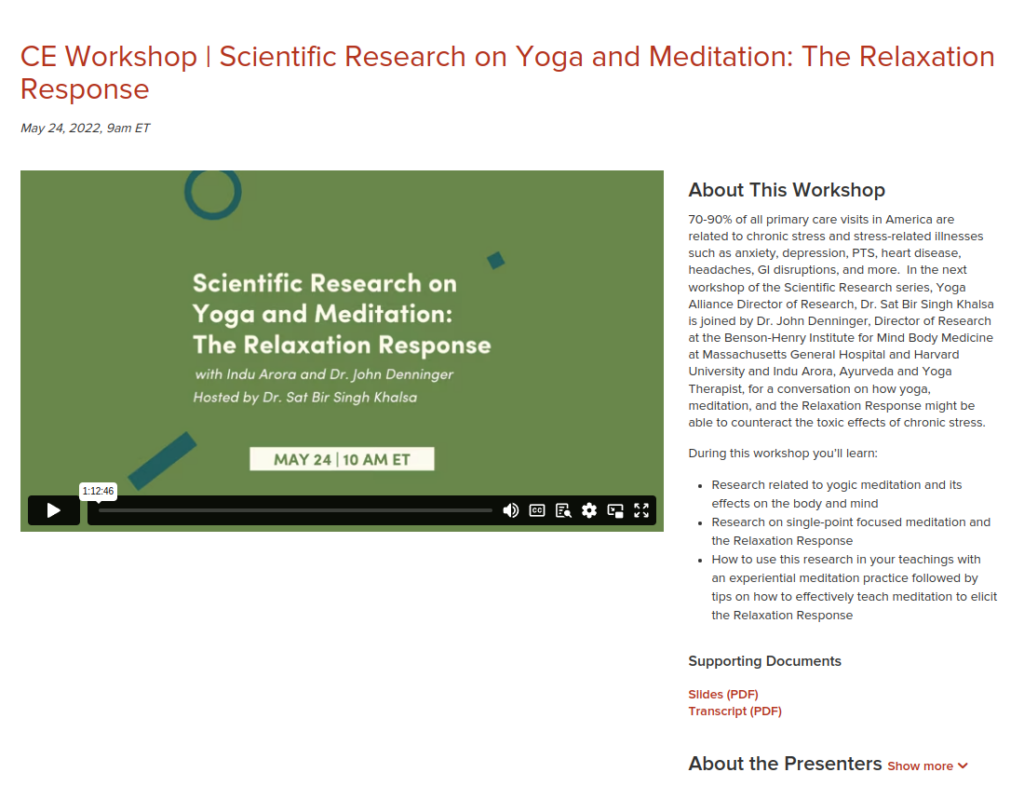Publication
Yoga Alliance
Abstract
About This Workshop
70-90% of all primary care visits in America are related to chronic stress and stress-related illnesses such as anxiety, depression, PTS, heart disease, headaches, GI disruptions, and more. In the next workshop of the Scientific Research series, Yoga Alliance Director of Research, Dr. Sat Bir Singh Khalsa is joined by Dr. John Denninger, Director of Research at the Benson-Henry Institute for Mind Body Medicine at Massachusetts General Hospital and Harvard University and Indu Arora, Ayurveda and Yoga Therapist, for a conversation on how yoga, meditation, and the Relaxation Response might be able to counteract the toxic effects of chronic stress.
During this workshop you’ll learn:
- Research related to yogic meditation and its effects on the body and mind
- Research on single-point focused meditation and the Relaxation Response
- How to use this research in your teachings with an experiential meditation practice followed by tips on how to effectively teach meditation to elicit the Relaxation Response
Web and Email Links
Related Listings
Journal
Fertility and Sterility
There is increasing evidence that a behavioral treatment approach might be efficacious in the treatment of the emotional aspects of infertility and may lead to increased conception rates. The first 54 women to complete a behavioral treatment program based on the elicitation of the relaxation response showed statistically significant decreases in anxiety, depression, and fatigue as well as increases in vigor. In addition, 34% of these women became pregnant within 6 months of completing […]
Journal
Journal of Human Stress
The efficacy of the regular elicitation of the relaxation response in reducing surgical anxiety and pain in an ambulatory surgery setting was studied in a population of patients scheduled for the surgical removal of a skin cancer. Forty-nine patients with skin cancer were enrolled in the study immediately after being informed of the ned for surgery; 21 of these patients elicited the relaxation response 20 minutes per day until the day of surgery, 21 read for 20 minutes per day, and 7 […]
Journal
Biofeedback and Self-regulation
The purpose of this study was to assess the central nervous system effects of the relaxation response (RR) in novice subjects using a controlled, within- subjects design and topographic EEG mapping as the dependent measure. Twenty subjects listened to a RR and control audiotape presented in a counterbalanced order while EEG was recorded from 14 scalp locations. The RR condition produced greater (p < .0164) reductions in frontal EEG beta activity relative to the control condition. N […]

